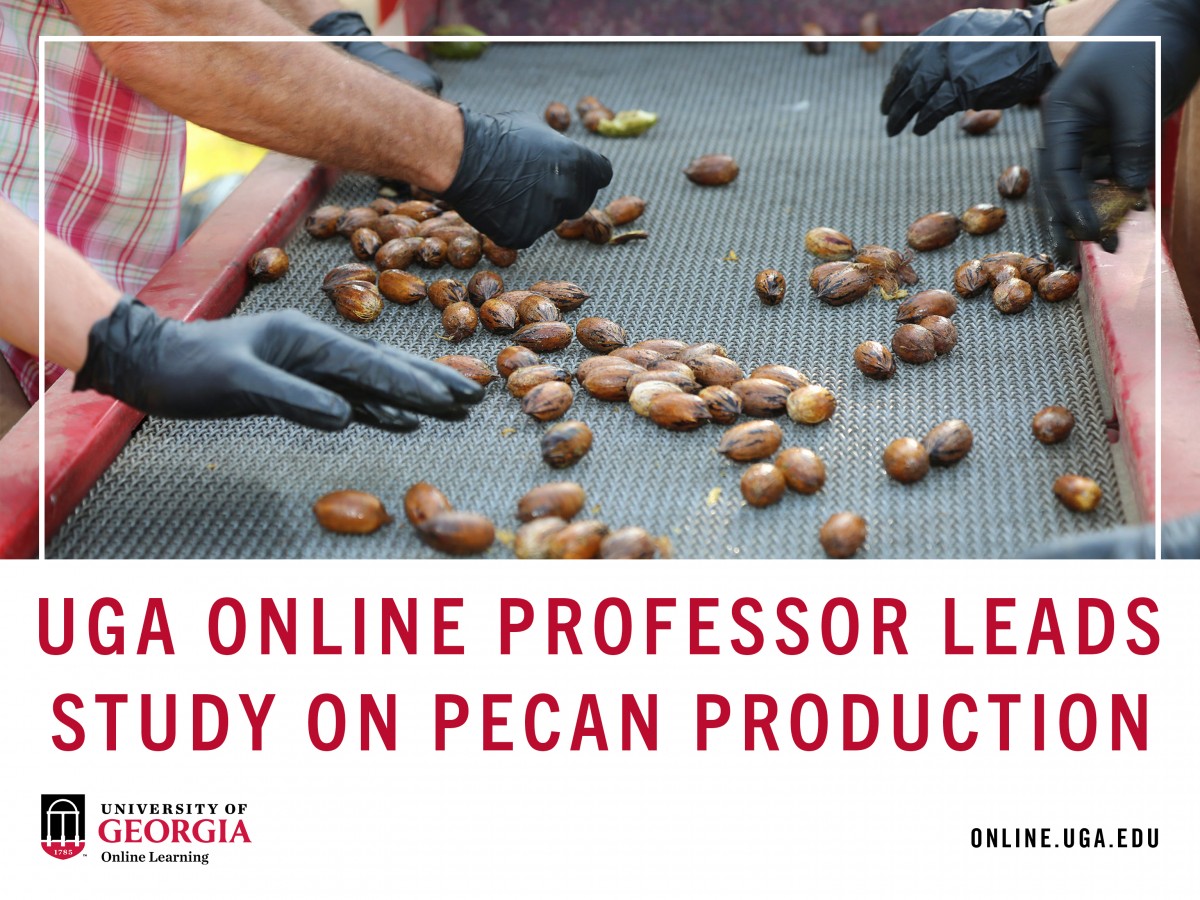UGA Online professor leads study on the most reliable measures for pecan production
UGA Online professor leads study on the most reliable measures for pecan production
Dr. Fanbin Kong, a professor for the Master of Food Technology, led a review conducted by the University of Georgia with doctoral candidates for the UGA College of Agricultural and Environmental Sciences Department of Food Science and Technology, Himanshu Prabhakar and Shruti Sharma, to identify scientific principles behind storing and handling techniques for pecans.

“Georgia is the nation’s leading pecan-producing state. In recent years, Georgia-grown pecans have seen a rapid increase in sales in the international market, and a big portion of Georgia pecans are exported to other countries. The quality can deteriorate significantly during the long-term transportation and storage,” said Kong, who initially identified the need for in-depth research on postharvest pecan quality.
The UGA review is a smaller part of a research project funded by the U.S. Department of Agriculture Specialty Crop Block Grant program. The goal of the three year project is to identify factors such as relative humidity, temperature, packaging and processing influence quality changes and shelf life of pecans.
The end product of this project will be a mathematical model that is being developed by Dr. Kong and Prabhakar. This model will be developed by studying pecans under a variety of storage and handling conditions.
“We are developing a computational predictive model that can estimate the shelf life from different conditions (moisture, humidity, temperature, packaging methods, conditioning, etc.),” Kong said. “The model will be free for use by Georgia pecan growers and processors.”
Prabhakar explained that producers will not need to work with the complex equations the researchers are developing. Instead, a website will be created for producers to input factors such as temperature, relative humidity and pecan variety to receive information about the changes in quality that will occur over time. This will help pecan growers prepare accordingly, whether investing in different storage technology or adjusting sales timelines.
This model aims to help Georgia-grown pecans stay competitive and increase profitability in the growing global market. Consumers, both domestically and internationally, are recognizing pecans for their health benefits, which include vitamins, minerals and essential fatty acids. Millennials and Generation Z are also incorporating more nuts into their diets as they adopt plant-based food products.
“Given the fact that the popularity of plant-based foods is on the rise, research should be focused on understanding the chemistry of pecans and ways to advertise their health benefits in the international market,” said Sharma. “The future of this study depends on how effectively it will be communicated to the right audience at the right time to seek their feedback to incorporate the improvements.”
Kong, Prabhakar and Sharma hope their research will help Georgia’s pecan producers and help market pecans to new consumers.
For the full article, visit https://www.caes.uga.edu/news-events/news/story.html?storyid=8515&story=Pecan-Quality
